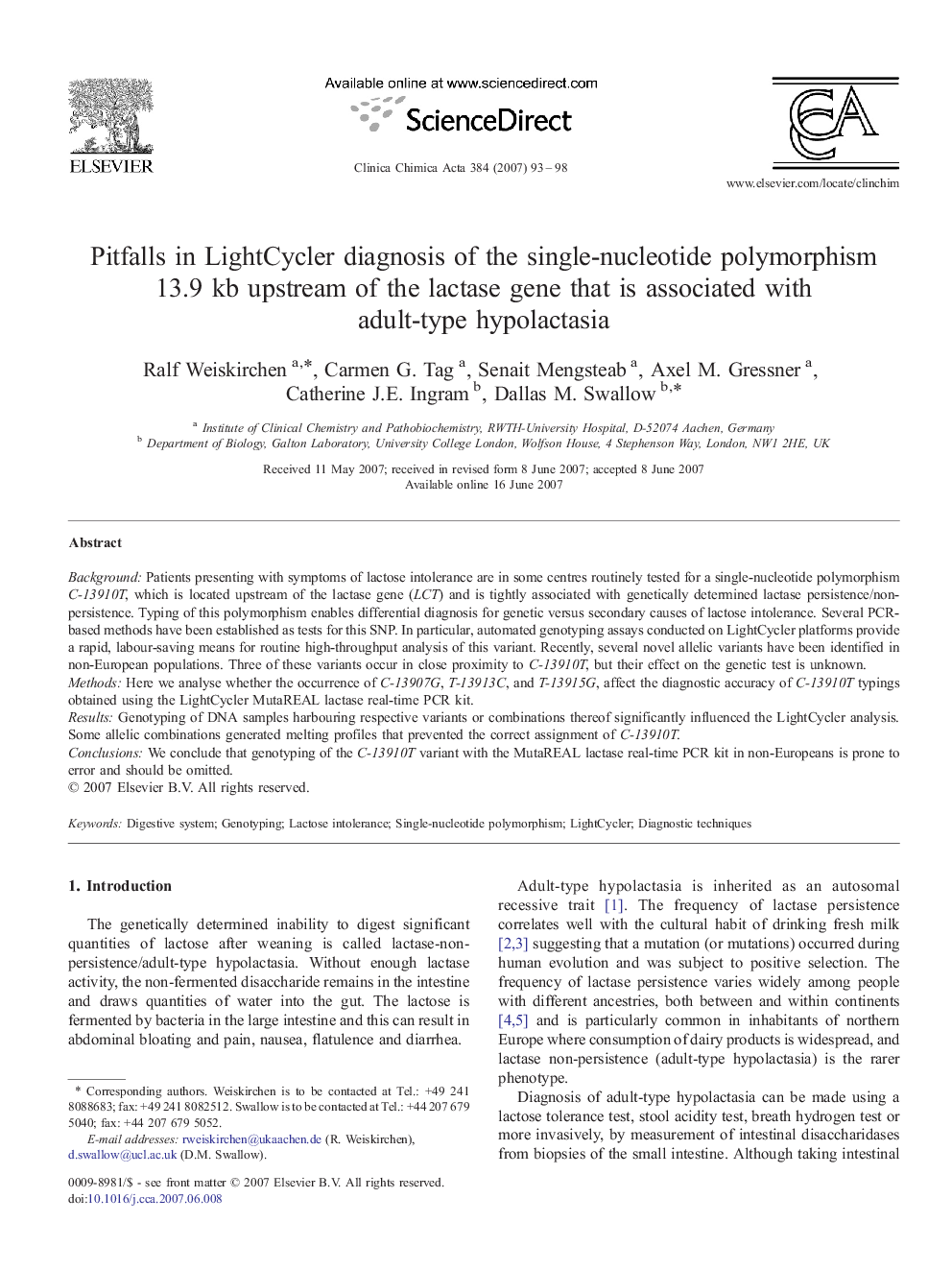| Article ID | Journal | Published Year | Pages | File Type |
|---|---|---|---|---|
| 1967304 | Clinica Chimica Acta | 2007 | 6 Pages |
BackgroundPatients presenting with symptoms of lactose intolerance are in some centres routinely tested for a single-nucleotide polymorphism C-13910T, which is located upstream of the lactase gene (LCT) and is tightly associated with genetically determined lactase persistence/non-persistence. Typing of this polymorphism enables differential diagnosis for genetic versus secondary causes of lactose intolerance. Several PCR-based methods have been established as tests for this SNP. In particular, automated genotyping assays conducted on LightCycler platforms provide a rapid, labour-saving means for routine high-throughput analysis of this variant. Recently, several novel allelic variants have been identified in non-European populations. Three of these variants occur in close proximity to C-13910T, but their effect on the genetic test is unknown.MethodsHere we analyse whether the occurrence of C-13907G, T-13913C, and T-13915G, affect the diagnostic accuracy of C-13910T typings obtained using the LightCycler MutaREAL lactase real-time PCR kit.ResultsGenotyping of DNA samples harbouring respective variants or combinations thereof significantly influenced the LightCycler analysis. Some allelic combinations generated melting profiles that prevented the correct assignment of C-13910T.ConclusionsWe conclude that genotyping of the C-13910T variant with the MutaREAL lactase real-time PCR kit in non-Europeans is prone to error and should be omitted.
